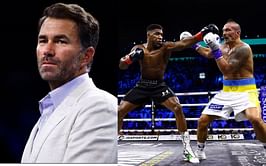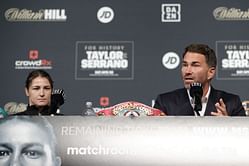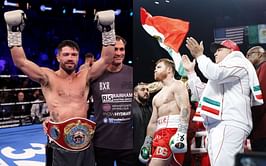The World Boxing Organization (WBO) is one of the four sanctioning organizations that recognizes professional boxing world champions. The WBO, along with the WBA (World Boxing Association), WBC (World Boxing Council) and IBF (International Boxing Federation), are recognized by the IBHOF (International Boxing Hall Of Fame) as major world championship groups.
The headquarters of the WBO are located in San Juan, Puerto Rico.
The WBO was formed in 1988 and is a non-profit institution. The motto of the WBO is "Dignity, Democracy, Honesty".
The current serving president of the WBO is Francisco Varcarcel.
Disputes regarding what rules should be applied in the WBA were the reason a group of Peurto Rican and Dominican businessmen broke out of the WBA's 1988 annual convention and brought about the WBO. A new organization required a new president, and the first president of the WBO was Ramon Pina Acevedo - who was from the Dominican Republic.
Soon after its inception, the WBO began staging world championship fights all over the world. At that time, the super middleweight title was vacant and was contested for by Thomas Hearns and James Kinchen. The bout was won by Hearns by judges' decision.
The next elected president for the WBO was the former world light heavyweight champion, Jose Torres from Puerto Rico. In 1996, Torres left the WBO, which gave way to the current president, Francisco Varcarcel, taking up the chair.
In 1989, the WBO wanted to crown a champion for its inaugural heavyweight title. The match sanctioned for this opportunity was fought between two relatively unknown fighters, Francesco Damiani and Johnny DuPlooy. Damiani went on to win the bout and became the first heavyweight champion of the WBO.
In the United States, the WBO initially struggled to gain credibility in the heavyweight category as a sanctioning body because the WBO heavyweight champions like Michael Moorer, Riddick Bowe, and Henry Akinwande relinquished their title to pursue other options. The IBF was recognized by The Ring in 1983 but the WBO wasn't.
The WBO fared better in Europe than it did in the United States in its early years. In unification fights as well, the WBO champions performed better than the IBF, WBA and WBC champions. For instance, the WBO light-heavyweight champion unified his title with IBF and WBA titles.
Also, the WBO feather-weight champion defeated the IBF, WBA and WBC champions in the same weight class.
In 2001, the WBO champions received the same recognition by the WBA that was given to the IBF and WBC champions.
The WBC would begin naming the WBO champions on its ranking list in 2004. The IBF too recognized the WBO in February of 2007. The WBO explicitly recognizes the other three sanctioning bodies.
The honorary title of "Super Champion" has been awarded to certain boxers of any weight class, who fulfill a set of distinguished criteria. The WBO had started this trend since the early 2000s. This title isn't a championship but is more like a lifetime achievement award, and so it cannot be lost to another boxer.
Even if a boxer moves to another weight class, his/her recognition as Super Champion is maintained.









